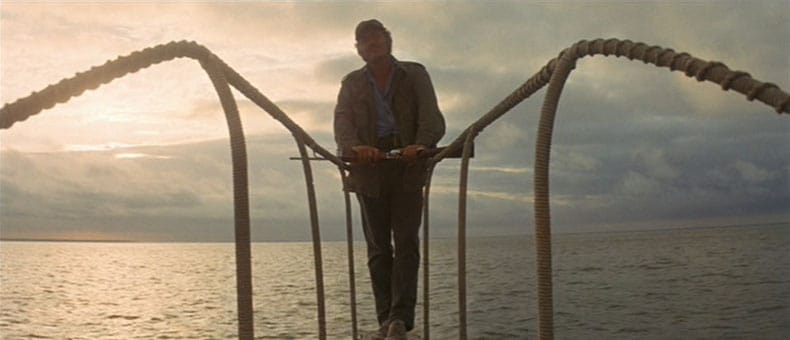THE SHARK IS A LONELY HUNTER

Just re-read Robert Lautner's Quint (The Borough Press) while on a brief break down in Cornwall, and it felt like experiencing it sea fresh for the first time. This prequel to Peter Benchley’s Jaws and Spielberg’s iconic movie is so persuasive in its first-person narrative that you feel as though you’re living inside Quint’s head—almost as claustrophobic as being trapped in an anti-shark cage at the bottom of the sea while a great white circles you.
For make no mistake: Quint is the human embodiment of the very sharks he hunts, driven by an appetite for revenge against the predatory fish after his traumatic experience aboard the USS Indianapolis, which led to multiple blood-soaked horrors for him and his servicemen in the Pacific Ocean.
In the first half of Lautner's brilliant book, Quint is caught in a cross-country migratory drift, as events propel him eastward toward his final destination: the seaside town of Amity. A persona non grata in the very country he once served—disgraced by association with one of the most shameful episodes in U.S. naval history—this haunted hunter finds himself, much like the sharks he pursues: constantly in motion, unable to turn back, compelled by a primal need to survive and an unquenchable thirst for retribution. That thirst is finally sated when he stakes out his fishing waters in Amity—not in a straightforward or legalistic manner, but by asserting dominance, credibility, and a territorial presence in a competitive, often hostile environment where he is viewed as an untrustworthy outsider among the seasoned men of the port.
And it's not just Quint literally staking out his territorial waters, but also his identity—evolving from a wayward seafarer into a feared and respected hunter of the deep. In his desire to prove himself—more to himself than to others—Quint’s arrival in Amity sets the watery stage for a final confrontation with his past, as he channels the weight of his trauma in preparation for the ultimate hunt against his finned adversaries. It’s a form of psychological and emotional grounding—an attempt to anchor something within, even as everything around him remains fluid and uncertain.
Lautner’s Quint is definitely a more cerebral kind of seaside pulp fiction—one that owes as much to Melville’s Moby-Dick as it does to Benchley’s original 1974 novel. And certainly, after closing the book, it’s impossible not to still hear his voice (obviously Robert Shaw) echoing in your mind like a pirate’s siren song, carried thousands of miles beyond the horizon of the vast Atlantic Ocean.
Farewell and adieu, to you Spanish ladies
Farewell and adieu, to you ladies of Spain
For we received orders for to sail for Old England
But we hope, very soon, we shall see you again